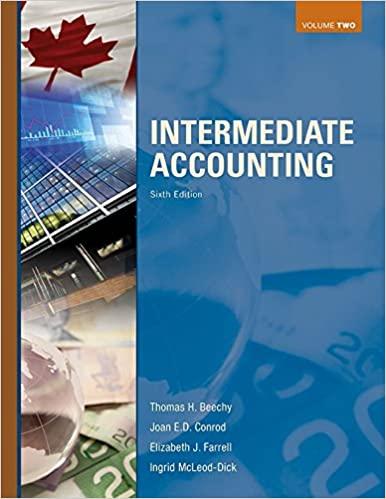Question
Question: What are the main issues facing John Smith? Case INTRODUCTION John Smith, C.A., was recently assigned the responsibility for the audit of Acme Hardware,
Question: What are the main issues facing John Smith?
Case
INTRODUCTION
John Smith, C.A., was recently assigned the responsibility for the audit of Acme Hardware, a new client. He was wondering what action, if any, he should take about the way certain stores of Acme Hardware were accounting for inventory and advertising costs. As a result of his pre-audit review of the previous auditor's files, he had identified a situation where there was a probability that certain store managers, motivated by the company's management and control system, were taking advantage of discretionary accounting alternatives available to them. Any complete investigation would be disruptive and expensive and had to be considered in light of the fact that the impact of their actions on the company's financial statements might be immaterial.
THE COMPANY
Acme Hardware was a rapidly expanding chain of hardware stores which operated in southern Ontario. All stores were company-owned; there were no franchises.
By the beginning of the 2007/08 fiscal year, Acme had 14 stores, four of which had been opened up in the previous five years. Total sales in 2006/07 were $307 million (up from $214 million in 2002/2003), resulting in net income after corporate expenses and income taxes of $12 million ($6.50 million in 2002/2003). Total assets as at March 31, 2007 were $174 million.
Acme's success was attributed to several factors, but the most important was usually considered to be the generous bonuses ($50,000), which were payable to the store manager when the budgeted net income for the year was met. Budgets were set by head office, after negotiations with store management. Net income was computed in accordance with accounting policies laid down by head office, and in the event of disagreement, Acme's auditors, who also reviewed each store's records, were to act as arbitrators. The predecessor audit firm had not been required to arbitrate any disagreements about the income computations in the preceding five-year period.
PREPARATION FOR THE AUDIT
Acme had recently engaged a new firm of auditors, Cooperhouse and Sells, and John Smith was the partner assigned to the engagement. In planning the work to be performed for the first year the year ended March 31, 2008 he reviewed the predecessor audit firm's working paper files. John found that the above-mentioned bonus arrangement had been identified by that firm as a potential "audit risk"1 with regard to the pressure on store managers to achieve budgets.
John reviewed the budget and actual net income figures for the previous five years, to see how frequently the budgets had been met, and hence the bonuses paid. He noted that, for 10 stores he examined, because they had been in operation for some time, and therefore had an established pattern of operations, bonuses had been paid on 23 occasions (out of a maximum of 50). He also noted that, when a budget was met, the tendency seemed to be for it to be met by a narrow margin, but, when missed, by a much wider margin.
Step by Step Solution
There are 3 Steps involved in it
Step: 1

Get Instant Access to Expert-Tailored Solutions
See step-by-step solutions with expert insights and AI powered tools for academic success
Step: 2

Step: 3

Ace Your Homework with AI
Get the answers you need in no time with our AI-driven, step-by-step assistance
Get Started


